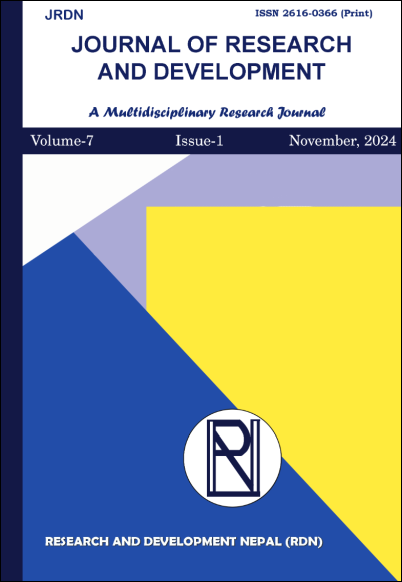Causes of Mental Stress and Associated Social Behavior in Students: A Phenomenological Study
DOI:
https://doi.org/10.3126/jrdn.v7i01.72439Keywords:
Corporal punishment, maltreatment, mental stress, social behavior of students, source of stressAbstract
This article explored the sources of mental stress and their reflection on the social behavior of the students in an institutional (private) school in Palungtar of Gorkha district, Nepal. A phenomenological study was carried out using semi-structured questions and in-depth interviews with purposive sampling of the participants. Five students who were distressed from mental stress, one parent, and one principal of the institutional school were the participants. Due to the English language, the learners couldn't have in-depth conversations with their teachers and couldn’t express their difficulties. So, students had a low relationship with their tutors. They were continually thinking about how to get out of school and play with their friends outside of the house. As a result, they were subjected to maltreatment and pressure to study. Most of the children were suffering from mental stress as a result of overburdened teaching-learning activities, difficult discipline, joining school at a young age, and being tied by particular school norms. Teachers and parents thought optimistically but acted ineffectively, viewing the children as machines. Maltreatment, forcibly learning, English as a second language resulting in difficulty in expressing feelings, instance rule of discipline, and rote learning all caused mental stress. The fitted standards of discipline and non-humanistic conduct generated imbalanced homeostasis in the kids' bodies, resulting in mental tension, and thus they acted unsociably. Implications of this study include the use of intrinsic motivational processes by the schools to foster a social environment and promotion of social behaviors among the students rather than forcibly changing them.




